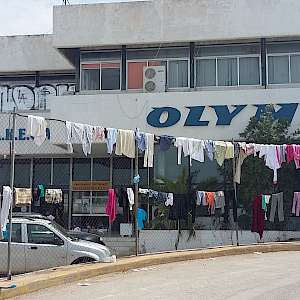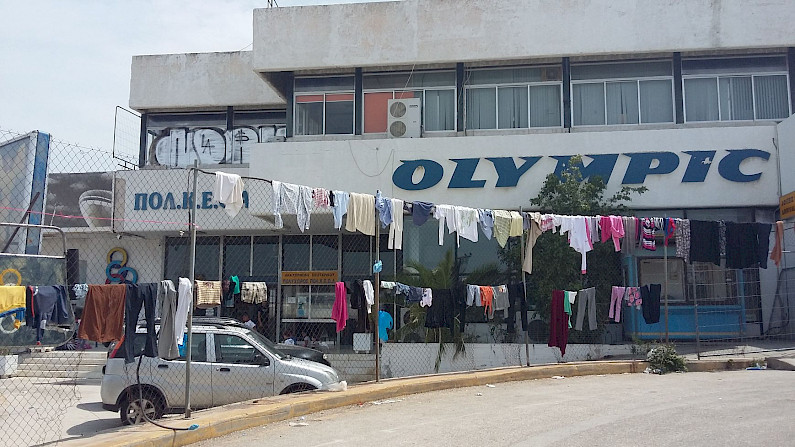
Azida
Azida, a 27 year-old Circassian woman living in Athens, feared for both her children's lives and their education, before leaving Syria:
"The incident that made me decide to leave Syria: my son, my two children are in school. The school is close to the home, not a long distance. There was an attack. Suddenly, my children are in school, there’s an attack, and I’m at home. My children can’t come home and I can’t go to the school to pick them up. So they let the children go and told them to go home quickly. They let the children out, they started shooting at the children in front of the school. A child was shot. I didn’t… this incident scared me a lot. And if I keep my children imprisoned at home, it will be an ignorant generation. I don’t want my children to be ignorant. Since, I decided to leave."
Media representations of Syrian refugees often focus on harrowing stories of war pre-departure, in order to justify refugee motivations to leave. This can reinforce narratives of "deserving" versus "undeserving" migrants as part of a wider discourse that aims to differentiate "genuine" refugees from economic migrants. This blogpost written by a Syrian refugee gives his perspective on the experience of being interviewed, and explains his concerns about the exploitative news media focus on emotive aspects of Syrian refugee stories.

Elliniko - an informal camp home to refugees in Athens – image by Vicki Squire, copyright CTM

VICKI SQUIRE
This extract is from an interview conducted during the summer of 2016 as part of the Crossing the Mediterranean Sea by Boat project, which was led by Vicki Squire: www.warwick.ac.uk/crossingthemed. Fuller stories from which these excerpts are taken can be explored here: https://crossing-the-med-map.warwick.ac.uk/